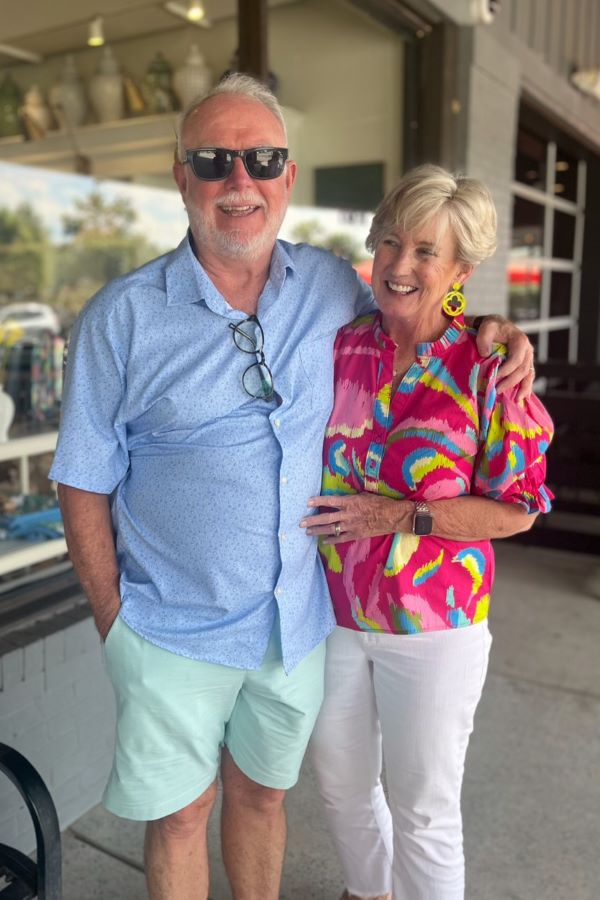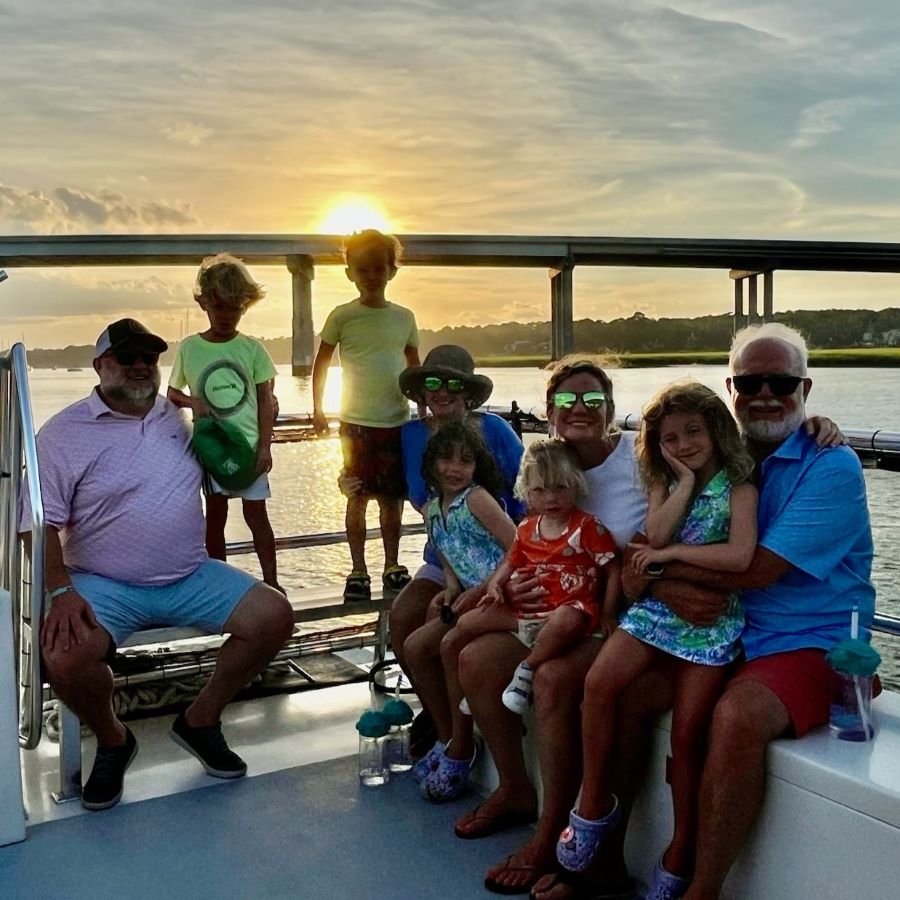
For 67-year-old Teresa Fitzgerald, life has been full of family, new experiences and the love of her husband, Bob. However, her journey has been marked by a battle with a rare and life-threatening condition: pulmonary hypertension.
"I’ve always been active and I never imagined that something like this would change my life so drastically," Teresa said, reflecting on her diagnosis in 2004.
 Teresa, who celebrated her 45th wedding anniversary with Bob earlier this year, moved to Woodstock, Georgia, six years ago after downsizing from the home where she lived
for 30 years. Today, she enjoys the freedom of golf cart rides to nearby restaurants, parks and music venues.
Teresa, who celebrated her 45th wedding anniversary with Bob earlier this year, moved to Woodstock, Georgia, six years ago after downsizing from the home where she lived
for 30 years. Today, she enjoys the freedom of golf cart rides to nearby restaurants, parks and music venues.
But, it hasn’t always been smooth sailing.
She first noticed symptoms of pulmonary hypertension while working as a professional. “I had a persistent cough and shortness of breath. It was affecting my work, making it hard to talk on the phone or perform everyday tasks,” Teresa recalled.
A concerned co-worker urged her to see a doctor, which led to a series of tests and ultimately her diagnosis. “I had never heard of pulmonary hypertension,” Teresa said. “When the doctor explained it to me, I knew it was serious, but I didn’t understand just how much it would change my life.”
Pulmonary hypertension is a condition where high pressure affects the arteries in the lungs, making it difficult for the heart to pump blood through the lungs. It can lead to severe shortness of breath, fatigue, and, if left untreated, can be fatal.
At first, Teresa’s doctors tried treating her with medication. However, her liver enzymes spiked, forcing her to stop the first medication, Tracleer. She continued to struggle with chest pains and shortness of breath, which led to a hospital stay.
During this time, Dr. Paul Boyce, a specialist in pulmonary hypertension who had recently joined the practice, became an integral part of her care team. "Dr. Boyce's intelligence and compassionate approach gave me hope," Teresa said.
Dr. Boyce recommended a more aggressive treatment plan, including IV Remodulin, a medication that required Teresa to have a Hickman catheter inserted into her chest to administer the drug. Though the catheter and pump came with challenges, she was willing to try anything to improve her condition.
“Having the Hickman catheter was difficult. I was hooked up to the Remodulin pump 24/7, and the side effects were limiting,” Teresa said. “After two years, we decided to stop the medication and remove the catheter.”
That decision marked a turning point in Teresa’s treatment. New medications and clinical trials offered a renewed sense of possibility. “I’ve been in my third clinical trial now, and I’m doing better,” she said. “Sildenafil, Macitentan, pulmonary rehab, and oxygen therapy have helped me reclaim my life.”
 Though Teresa still experiences shortness of breath, it no longer limits her ability to enjoy time with her family, friends, and especially her five grandchildren. “Family and friends know that my shortness of breath stops me from some activities,
but they’ll drive me close to the door, so I can save my energy for being with loved ones,” she said.
Though Teresa still experiences shortness of breath, it no longer limits her ability to enjoy time with her family, friends, and especially her five grandchildren. “Family and friends know that my shortness of breath stops me from some activities,
but they’ll drive me close to the door, so I can save my energy for being with loved ones,” she said.
Despite the ups and downs of her journey, Teresa remains optimistic. “Some days I feel housebound, but on the good days, we can travel and make new memories,” she said.
Through it all, Teresa credits her husband, Bob, with being her rock. "He knows when I’m scared of my limitations, but he pushes me to do the things I love."
As she reflects on the past 20 years, Teresa is grateful for the support of Dr. Boyce and his team at Pulmonary and Critical Care Associates (PCCA), as well as her family and friends. “I’ve had so many wonderful people helping me along the way. Their encouragement and compassion have kept me going.”
Teresa continues to cherish life, grateful for the strength of those who stand by her.
“I may have pulmonary hypertension, but it doesn’t define me,” Teresa said.
“I’m still living my life, enjoying every moment I can.
Learn more about pulmonology services at Northside.
*The health story shared here is for informational purposes only and is not medical advice. Patients should consult with their own physician before making medical decisions.
